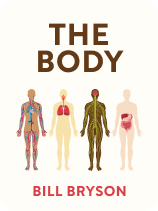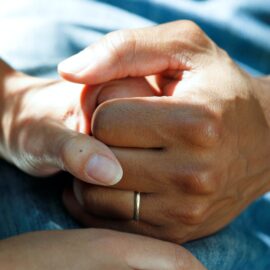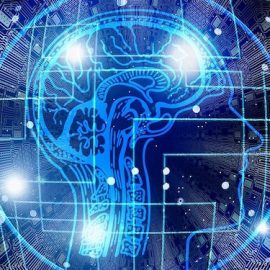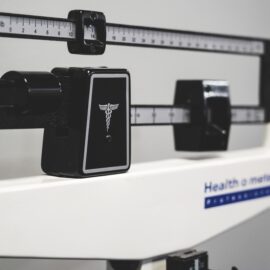

This article is an excerpt from the Shortform book guide to "The Body" by Bill Bryson. Shortform has the world's best summaries and analyses of books you should be reading.
Like this article? Sign up for a free trial here .
Why is sleep so important? How much sleep do you really need?
Sleep is critically important—if you go long enough without it, you’ll literally die. However, determining how much sleep you need isn’t so simple—everybody needs a different amount of sleep depending on the age group and individual body.
Keep reading to learn about the importance of sleep
The Importance of Sleep
Being active plays an important role in keeping your body functioning properly, but so does resting. In particular, Bill Bryson’s discussion in The Body emphasizes the danger of not getting enough sleep.
So, why is sleep so important? To answer this question, Bryson discusses a study that found the U.S. economy loses about $60 billion per year to sleep deprivation. This is because sleep-deprived workers are less productive, and Americans are now sleeping an average of two fewer hours per night than we did 50 years ago.
(Shortform note: While Bryson considered sleep deprivation from a macroeconomic perspective by citing its estimated cost to the economy as a whole, entrepreneurs David Fried and Jason Hansson address the microeconomic side of the issue in Rework. One of their key principles for building and maintaining the momentum of your company is to get more sleep. This is because getting enough sleep enhances your productivity and creativity, boosts your morale, and improves your ability to make good decisions on the job.)
Furthermore, Bryson asserts that sleep deprivation can be fatal. He provides two pieces of evidence for this. First, he cites a study in which lab rats were prevented from sleeping: All the rats died within a month. Autopsies of the rats showed no particular cause of death—after a certain amount of time without sleep, their bodies just shut down.
Second, he discusses a rare genetic disorder that can cause people to completely lose the ability to sleep. There is currently no effective treatment for the disorder, and every documented case has proved fatal: Without sleep, the victim’s organs eventually stop functioning.
(Shortform note: Some scientists question whether sleep actually serves a vital function. They observe that almost all animals sleep, but certain species of fruit flies sleep very little and can be prevented from sleeping without harming them (unlike humans or lab rats). One possible explanation is that most animals only perform certain vital functions (such as purging toxins from cells in certain organs) while they sleep, but that some are able to perform the same functions while they are awake. If this hypothesis is correct, then sleep accompanies vital functions in many animals, but is not a vital function itself.)
How Much Is Enough?
According to Bryson, how much sleep you need depends on your age, and the ideal number varies from one person to another even within a particular age group:
- Infants need about 19 hours of sleep per day.
- Preschool children need about 14 hours of sleep per day.
- School children need about 12 hours of sleep per day.
- Adolescents need about 10 hours of sleep per day.
- Adults need about 8 hours of sleep per day, plus or minus an hour or so, depending on the individual.
(Shortform note: Contrary to Bryson’s recommendations, in The 4-Hour Body, Tim Ferriss asserts that an adult can be healthy and productive with as little as two hours of sleep per day. According to Ferriss, a “polyphasic sleep schedule” makes this possible: Instead of sleeping all night and being awake all day, you take a 20-minute nap every four hours, around the clock. However, Ferriss’s assertions remain controversial because polyphasic sleep has not been studied much by scientists, and existing studies tend to contradict the idea that you can get by on just two hours of sleep.)
Let Teenagers Sleep In
In addition to pointing out that adolescents need about two more hours of sleep per day than adults, Bryson observes that our biological clocks tend to shift by about two hours during adolescence. As such, he argues that it’s biologically normal for adolescents to stay up later and sleep in later than adults.
Thus, based on the numbers Bryson presents, allowing adolescents to start their day four hours later than adults would be merely equitable. Let’s say adults get up at 6:00 AM. If teenagers go to bed two hours later because of the differences in their biological clocks, and sleep two hours longer because their bodies require more sleep, then they should get up at 10:00 AM.
(Shortform note: Psychologist and neuroscientist Matthew Walker explores this issue in more detail in Why We Sleep. He suggests that the shift in teens’ sleep schedules plays a role in their transition from childhood to adulthood. Specifically, if the adolescents in a community go to bed later than their parents, that affords them time to socialize without adult supervision. This, in turn, allows them to develop the social skills that they will need to function as independent adults.)

———End of Preview———
Like what you just read? Read the rest of the world's best book summary and analysis of Bill Bryson's "The Body" at Shortform .
Here's what you'll find in our full The Body summary :
- A whirlwind tour of the human body’s various systems
- Why your sense of smell is probably as good as your dog’s
- How hot peppers increase your life expectancy







Sure! Getting enough sleep is essential for our overall health and well-being. It helps improve memory and cognitive function, reduces stress and anxiety, strengthens the immune system, and can even help regulate weight and prevent chronic diseases. So, make sure you’re getting enough quality sleep each night to reap all these benefits!